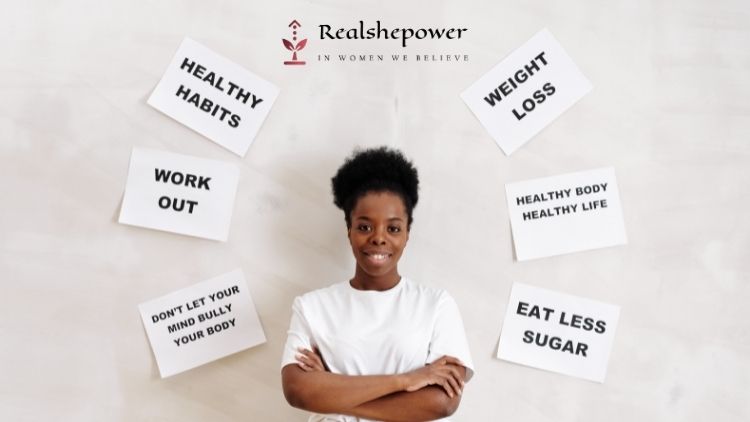8 Super Effective Ways To Overcome Peer Pressure And Think For Yourself

Peer pressure is a tricky thing. It can make things feel more fun when everyone is doing them, but it also means that if you don’t want to go along with what everyone else is doing, you’ll be left out. If this sounds familiar, here are some tips for overcoming peer pressure and thinking for yourself so that you can enjoy your high school years without feeling like an outsider:
1. Know yourself before you can confidently say no to peer pressure.
The first step to overcoming peer pressure is to know yourself. You should understand your own values, strengths and weaknesses, beliefs, goals and interests. You need to know what you’re good at so that when someone asks you to do something that isn’t in your best interest (or even something morally wrong), you can confidently say no without feeling like a failure or having guilt-trips about it later on.
If there’s one thing I’ve learned from being around teens for so long it’s that everyone has some sort of identity crisis going on at any given time in their lives—it could be about who they are as people or what kind of person they want their parents/friends/community members think they should be based on society norms rather than who they actually are inside themselves; however those conflicts can often lead them down paths where they aren’t happy with themselves.
So, invest time in truly knowing yourself. What do you like? What are your interests? What do you enjoy doing in your free time? Etc.
Don’t miss: Learn 6 Practical Tips for Managing Conflict in Relationships

2. Simply saying no is not the way to go.
Many people feel like they have no choice but to say yes when their friends or family ask them to do something. This can cause a lot of conflict in the long run, so it’s important to learn how to think for yourself and your own good.
When someone asks you if you want to go out with them, don’t respond by saying “yes” right away—instead, ask yourself what you are comfortable doing with this person and make sure that the activity is something that fits within your schedule or interests. If it’s not something that fits either of those categories, then simply say no!
Saying “no” doesn’t always mean being aggressive or rude; sometimes we just need some space from other people for ourselves (and vice versa).
3. Find alternatives to things that you don’t want to do.
- Ask a friend (or family member) if they would like to join in and do the same thing, but with them. This is a great way of making sure no one feels left out!
- Do whatever it is anyway, then find something else fun that isn’t necessarily related or required by peer pressure but still gives your brain a break from thinking about what others think about what you should be doing right now!
- Find another way of spending time together without having to do any work at all – perhaps watching movies together? Or playing cards? Or drawing pictures on paper scraps while talking about how much fun they are having together?
4. Learn how to keep secrets so others don’t feel like they have to resort to threats or coercion in order to keep you around.
You can learn how to keep secrets, but it’s not easy. It takes practice and discipline. It takes a lot of trust that you won’t say something that will hurt someone else or yourself in the long run, so take this advice with a grain of salt: If someone is trying to control your behavior by threatening you with negative consequences (e.g., “If you don’t do X, then Y will happen”), then maybe there’s something wrong with their intentions for wanting what they want from YOU rather than just telling you the truth directly!
Read: If you lack discipline, read this article to learn 7 tips and tricks for being disciplined

5. Have a “Go To” response for when you’re feeling pressured.
- Practice your “go to” response. Say it out loud and in your head, then practice it in front of a mirror, with a friend or family member, with your pet (or any other animal). Keep practicing until you feel comfortable using it when pressured by others.
- Make sure that what you say is true and will not harm anyone else’s feelings. For example: “I don’t want to go out tonight because I am tired” is better than “I don’t want to go out tonight because everyone else wants me there.”
6. If something feels wrong, trust your instinct and resist the urge to go along with it.
It’s important to listen to your gut, heart and inner voice – they are all a part of you as well! Listen to them when they tell you something is right or wrong. If there is no clear answer in these areas then ask yourself if this is really worth doing? If so then go ahead but if not then don’t do it!
7. Remember, it’s okay not to be liked by everyone. If someone really wants a friendship with you, they’ll be willing to respect you even if they don’t always agree with everything you do or say.
Remember, it’s okay not to be liked by everyone. If someone really wants a friendship with you, they’ll be willing to respect you even if they don’t always agree with everything you do or say.
The key is not being afraid of standing up for yourself and doing what’s best for you in the long run.
8. It’s okay if your friends want different things from life than you do (or vice versa). You probably won’t always see eye-to-eye on everything anyway!
Peer pressure can be a powerful force, but it’s important to remember that you don’t have to follow the herd. If your friends want different things from life than you do (or vice versa), that’s okay! You probably won’t always see eye-to-eye on everything anyway!
Don’t let peer pressure get in the way of your goals and dreams. Don’t let peer pressure get in the way of your relationships. Don’t let peer pressure get in the way of your mental health by making decisions based on what other people think is “cool.” And above all else: don’t let peer pressure get in the way of physical health by smoking cigarettes or drinking alcohol excessively—both are common ways for teens “to fit into” their social groups, but only serve as short term fixes for deeper issues such as low self esteem and depression.
Conclusion
Remember, the most important thing is to be true to yourself. The good news is that you can do this without too much trouble—even if it doesn’t always feel like it at first! And remember: It’s okay if your friends want different things from life than you do (or vice versa). You probably won’t always see eye-to-eye on everything anyway! So let go of those negative thoughts, and learn to live life on your own terms.
Top 20 regrets that people have in life

Top 10 Hacks to Melt Hormonal Fat: Ditch the Stubborn Stuff!









